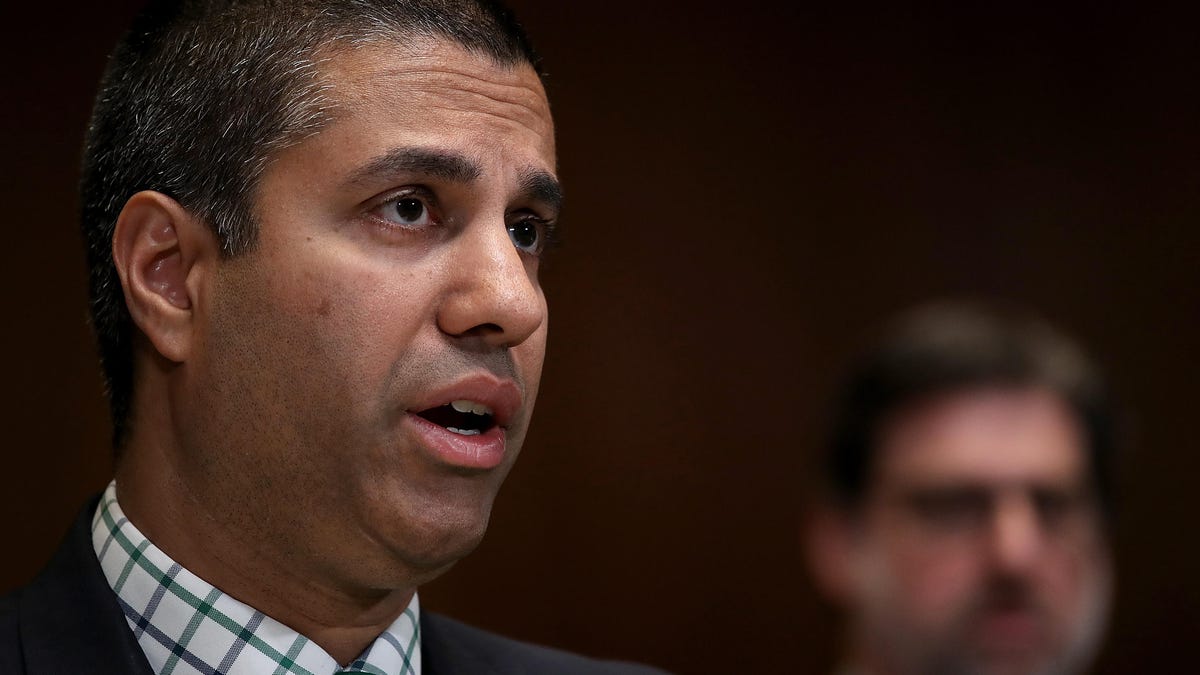FCC Chairman Ajit Pai says California net neutrality rules are 'illegal'
California lawmakers voted to move forward with a "gold standard" net neutrality bill last month.

FCC Chairman Ajit Pai spoke out against California's efforts to establish its own net neutrality rules.
California's efforts to establish its own net neutrality rules are "illegal," says the head of America's top communications regulator.
"California's micromanagement poses a risk to the rest of the country," Federal Communications Commission Chairman Ajit Pai said in a speech at the Maine Heritage Policy Center on Friday. "After all, broadband is an interstate service; Internet traffic doesn't recognize state lines. It follows that only the federal government can set regulatory policy in this area."
Last month, California's State Assembly Committee on Communications and Conveyance voted to move forward with Senate Bill 822, which provides strong protection on net neutrality. In his speech, Pai called it a "radical, anti-consumer" bill.
Sen. Scott Wiener, a Democrat from California, quickly responded to Pai's remarks.
"SB 822 is necessary and legal because Chairman Pai abdicated his responsibility to ensure an open internet," Wiener said in a statement. "Since the FCC says it no longer has any authority to protect an open internet, it's also the case that the FCC lacks the legal power to preempt states from protecting their residents and economy."
Wiener added that when Verizon throttled data for firefighters battling wildfires in California, Pai "said nothing and did nothing. That silence says far more than his words today."
Net neutrality, or the idea that all internet traffic should be treated equally, has been strongly debated over the past several years. Consumers, tech companies and Democrats have pushed for stricter regulations that prohibit the prioritization of traffic.
Under the Obama administration, the FCC established rules to protect net neutrality. But the current FCC, siding with internet service providers and Republicans who say the regulations are too burdensome and hurt capital investment, rolled back those rules in June. In response, states such as California have sought to enact their own net neutrality rules.
California's proposed rules are considered stronger than the Obama-era rules. California's bill awaits approval from Gov. Jerry Brown.
Pai said if Brown signed the bill into law "it would prevent Californian consumers from buying many free-data plans. These plans allow consumers to stream video, music, and the like exempt from any data limits. They have proven enormously popular in the marketplace, especially among lower-income Americans. But nanny-state California legislators apparently want to ban their constituents from having this choice. They have met the enemy, and it is free data."
Wiener rebuked Pai's comments.
"SB 822 is supported by a broad coalition of consumer groups, groups advocating for low income people, small and mid-size technology companies, labor unions, and President Obama's FCC chairman, Tom Wheeler," Wiener said. "I'll take that support over Ajit Pai any day of the week."

